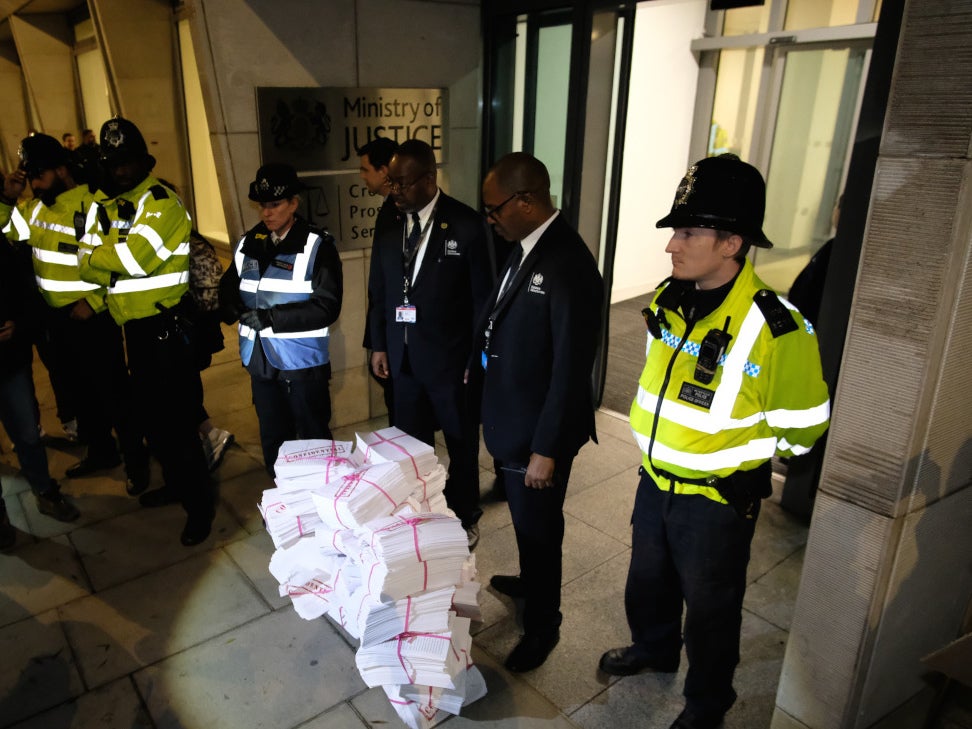Police chiefs call for controversial disclosure forms allowing officers to take rape victims' phones to be scrapped
‘It is likely to result in a loss of confidence in the police, the CPS and the criminal justice system,’

Police and crime commissioners have called for controversial forms allowing officers to examine the phone data of rape victims to be withdrawn.
The disclosure consent forms have been introduced to all 43 police forces across England and Wales.
They ask victims of crime to give officers access to messages, photographs, emails and social media accounts.
Victims have been told that refusing to allow investigators access to their data could mean prosecutions were halted, a decision which has been met with significant backlash.
Before the forms were introduced officers were warned that the “traumatising” intrusion might stop victims reporting sexual assault and abuse.
All police forces started using the forms earlier this year, as part of a strategy to improve the way potential evidence is shared between officers, prosecutors and defence lawyers.
But some police chiefs fear their impact on public trust in the police.
“We have no doubt that this form, as it currently stands, should be withdrawn, or it is likely to result in a loss of confidence in the police, the CPS and the criminal justice system more broadly,” David Lloyd, police and crime commissioner for Hertfordshire, said, according to The Observer.
“Many companies have made clear that technology can help us with this issue – allowing prosecutors and police to have access only to relevant information on mobile devices.”
Northumbria police and crime commissioner Vera Baird also told the newspaper that in large numbers of sexual assault and rape cases “material unconnected to the facts of the case” was passed to defence lawyers by the CPS.
She said the information was used in court “to try and discredit the complainant”.
Ms Baird added: “CPS policy officials have admitted that demands for this kind of material have gone too far in the past.”
Julia Mulligan, police and crime commissioner for North Yorkshire joined Ms Baird and Mr Lloyd in criticising the new procedure.
The consent forms are part of the “national disclosure improvement plan”, which was sparked by public outrage over a series of rape cases that collapsed over newly discovered messages and photos in 2017.
The Victims Commissioner had earlier said victims of sexual violence were being re-traumatised by “routinely having their personal lives disproportionately investigated and disclosed in criminal trials”.
“Whilst this form sets out the position from a police perspective, from the victim’s perspective it is both complex and technical,” Baroness Newlove said.
“Many victims will just not be in a position to fully understand the implications of signing over their personal data. It is a huge decision to take at any time, let alone when you are at your most vulnerable.”
She called for victims to be offered free access to independent legal advice and for judges, rather than detectives or prosecutors, to decide what must be disclosed in disputes.
Additional reporting by agencies
